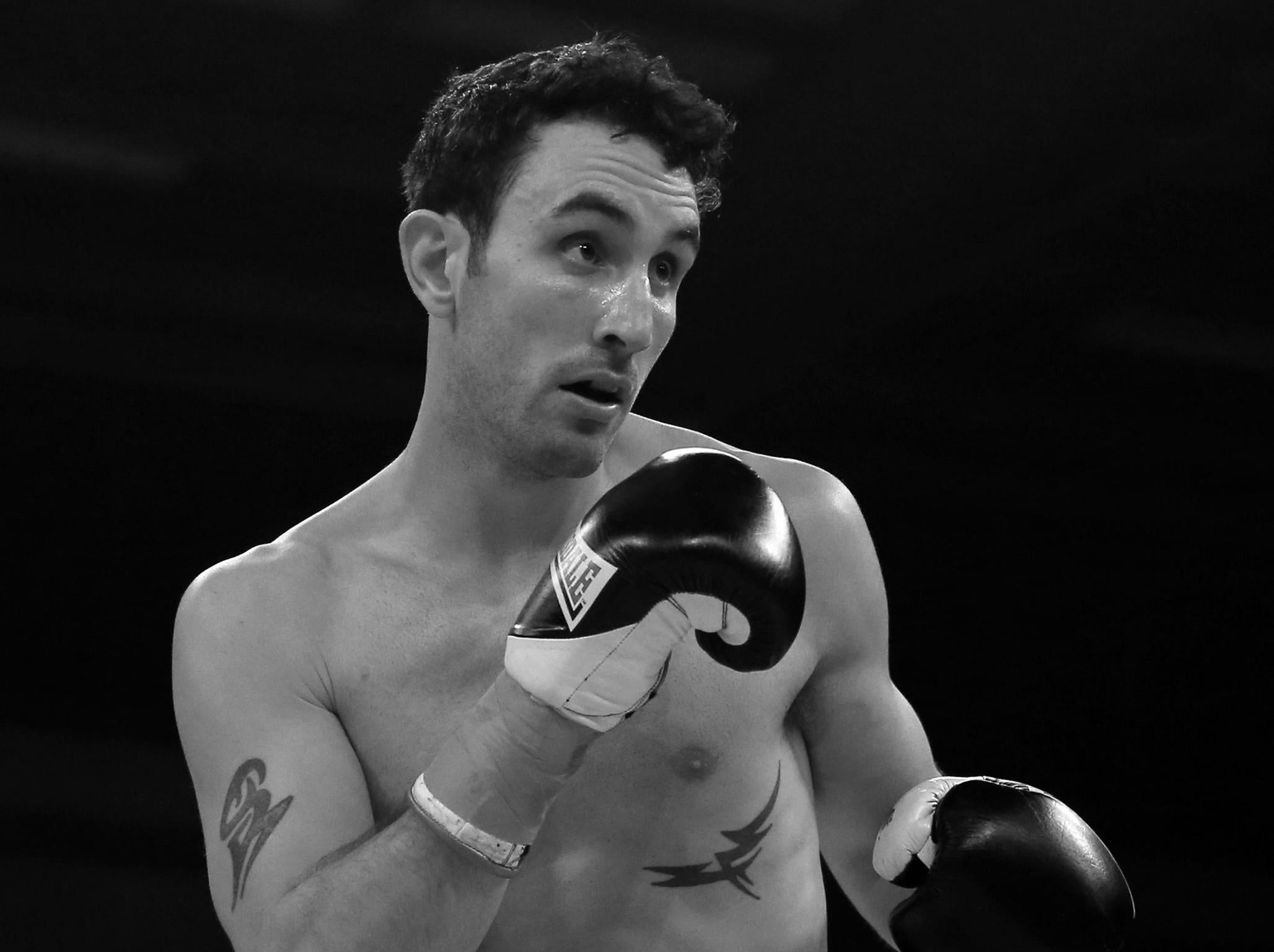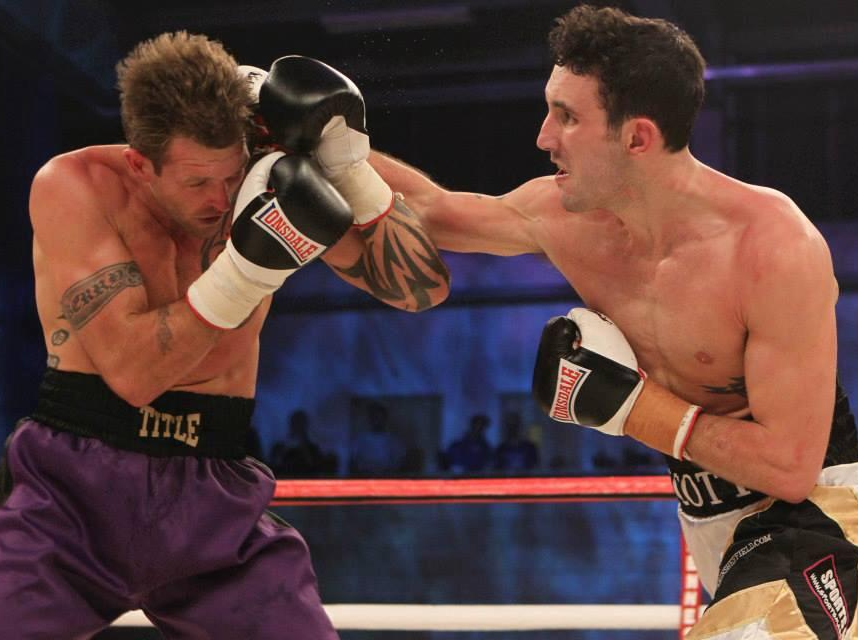RIP Scott Westgarth: The latest anonymous sacrifice in a sport naïve to the simple truths behind its own horror
Westgarth is the third British professional boxer to die after a fight in a British ring since 2013

Your support helps us to tell the story
From reproductive rights to climate change to Big Tech, The Independent is on the ground when the story is developing. Whether it's investigating the financials of Elon Musk's pro-Trump PAC or producing our latest documentary, 'The A Word', which shines a light on the American women fighting for reproductive rights, we know how important it is to parse out the facts from the messaging.
At such a critical moment in US history, we need reporters on the ground. Your donation allows us to keep sending journalists to speak to both sides of the story.
The Independent is trusted by Americans across the entire political spectrum. And unlike many other quality news outlets, we choose not to lock Americans out of our reporting and analysis with paywalls. We believe quality journalism should be available to everyone, paid for by those who can afford it.
Your support makes all the difference.Big Scott Westgarth is another dead body from the boxing ring, another bleak statistic buried deep under the latest avalanche of cosmetic RIP tweets and inane gibberish about his bravery.
Westgarth is the third British professional boxer to die after a fight in a British ring since 2013, the latest anonymous sacrifice in a sport that has raised both its profile and its mortality rate to alarming levels in recent years.
All three of the dead boxers were unknown scrappers on a distant and often obscure circuit, a fighting land that time forgot in many ways. Westgarth and Anthony Joshua belong to the same sport, pass identical medicals and fight under the same rules and are then separated by such vast differences that they are barely recognisable as men from the same business.
It might surprise people to know that between 1995 and 2013 not one British boxer died after a contest. Sure, there were injuries, men rushed in and out of surgery, plunged into blue twilights for days until they found the light, opened their eyes and survived to tell their tales. There are many boxing men, victims of invasive surgery, with large dents visible in their heads where removed bone flaps have never quite been replaced; their shattered skulls and broken lives offer as much hope as despair.
On Saturday night Westgarth won his fight against Dec Spelman, it went the distance and he was interviewed at ringside. During the interview Scott was distracted, touched his head, looked increasingly distressed. In boxing terms: “he was not right”. Some people did think this at the time and watching it back it is clear that he is in trouble. In the dressing room he complained of a headache, the ringside paramedics were called, the rest of the show postponed and the vilest race in sport was on.
That was late Saturday night in Doncaster and he died early Monday morning and, yes, he did die chasing some type of championship dream but he was a long, long way short of that dream. He also died for a couple of thousand pounds in pay and ticket commission. In 1995, wee Jimmy Murray collapsed minutes away from winning the British title, a belt worth a risk, but not your life. Murray was pronounced dead two days later. The dismal roll call of boxing’s dead is not a thing of beauty.

The immediate reports of Westgarth’s death were shameful in their bloated ignorance of the most basic of facts, and many of the voices from inside the boxing business were stupendous in their naivety of the simple truths behind such a horror. It is somewhat ironic that 54 years ago almost to the day The Daily Mirror featured nine British boxing writers on the front cover under a lurid headline: “The Men with Red Faces”. Their crime? They had all picked Sonny Liston to beat Cassius Clay.
Westgarth had lost two of his previous nine fights with six wins and a draw; on Saturday at the Dome in Doncaster he was the slight underdog against Spelman. The fight was over after 10 rounds of three minutes. It was hard without being savage; Spelman was dropped in the third and, tellingly, Westgarth was down late in the tenth. At the final bell, they embraced and waited for the decision: Westgarth got the nod with a score of 95-92. He deserved the win.
In the 10th and final round Westgarth was under pressure, caught, hurt and bundled through the ropes. He took some heavy shots and when he got back up, back though the tangle of ropes, the bell rang. The bell saved him from defeat. It was a good fight, a typical Saturday night fight away from the glitz and the glamour, one of 48 fights on seven shows in Britain on Saturday night.
There was no crazy concern about Westgarth then or during the post-fight interview. However, in the dressing room the paramedics were called, they were instant in their concern and Westgarth was taken for surgery to have a blood clot scraped from the surface of his brain. The vigil started, word spread, texts arrived during the midnight hours on Saturday and throughout a dreadful Sunday. It felt like a death long before it was official. I have been at too many death fights, too many nights when men went from throwing punches to hopeless comas, their boots littering the floor, cut off by desperate nurses. I have been in too many intensive care waiting rooms, the most tragic and pitiful space in any hospital. I could tell from the words of his closest friends that Scott Westgarth would die.
In 2013, Michael Norgrove collapsed into the arms of referee Jeff Hinds at a venue in south London. He died after surgery and a battle of nine days. In late 2016, Mike Towell was stopped in a brutal fight in Scotland and died a day later. Both Norgrove and Towell were unbeaten, inexperienced and not ruined by a life of hard, hard fights. Westgarth joins them as a mystery death in many ways. It makes no bloody difference today whether he was the survivor of a hundred ring wars or a nine-bout novice. A death is a death, even one that makes absolutely no sense. And in boxing no death ever makes sense.
Join our commenting forum
Join thought-provoking conversations, follow other Independent readers and see their replies
Comments